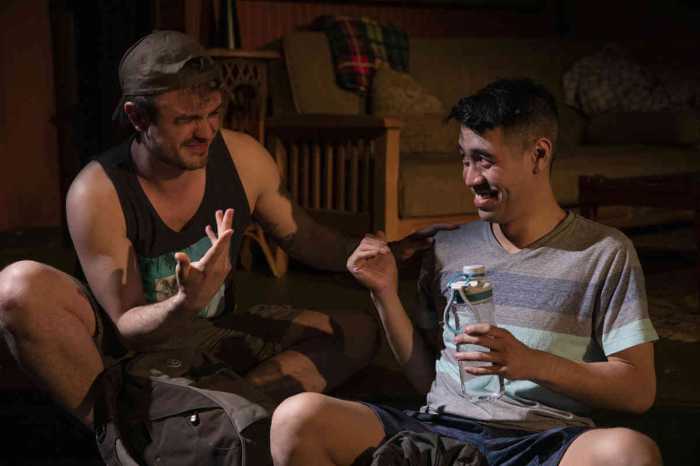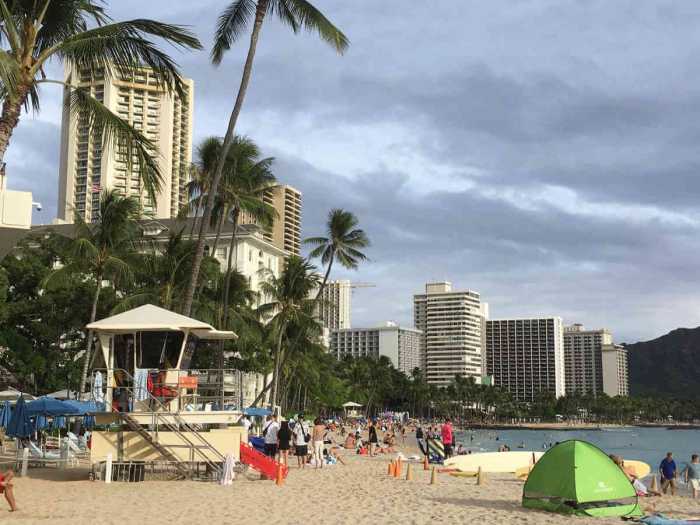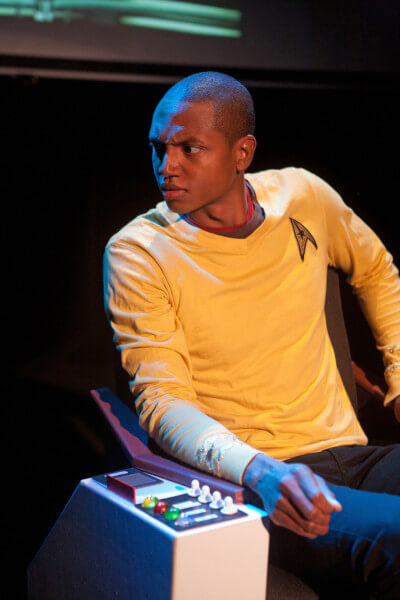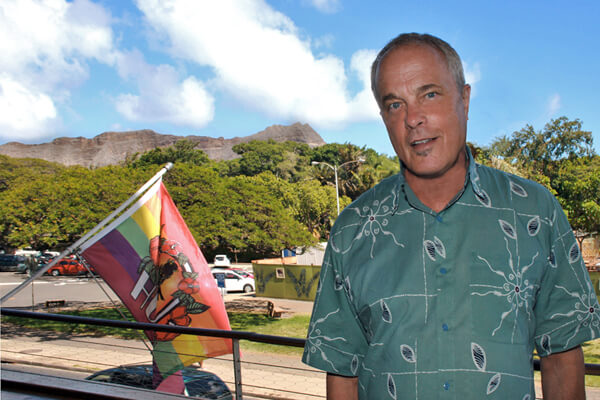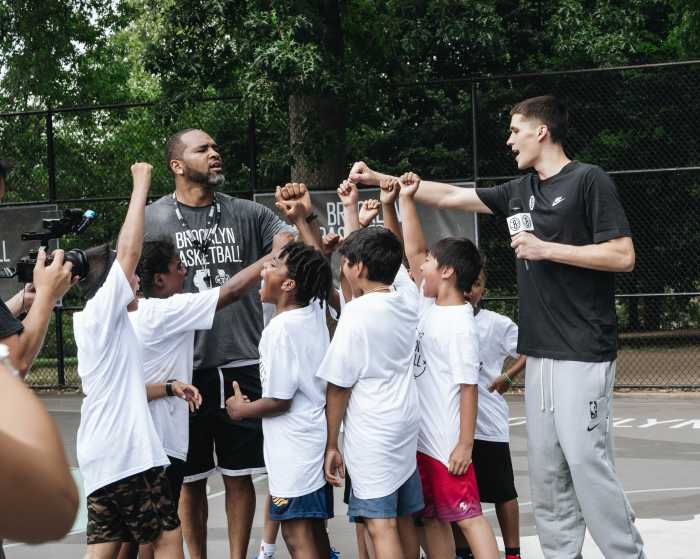BY DAVID NOH | My annual sojourn to Hawaii was, as always, memorable, marked this time by a true rite of passage, the funeral of my mother, Miriam Chun Noh. She was a complex, ferociously ambitious, and driven character, obsessed by business, at which she excelled, be it running hotels in Waikiki where I was raised or turning my father’s culinary inventions into an international concern, Noh Foods of Hawaii. She had a lovely graveside send-off at Diamond Head Cemetery, not far from her big house on the back slopes of that extinct landmark of a volcano, such a far cry from the downtown tenement where she grew up, the daughter of a plantation worker and his picture bride wife from Korea.
I told my favorite story about her. As a busy career woman, she had more than her share of Joan Crawford similarities (I actually once gave her that star’s “My Way of Life” how-to book as a Mother’s Day present.) Not one to overly fuss over her appearance, she often wore wigs to save time and, as a kid, I, of course, was fascinated by the row of Styrofoam heads in her dressing room (particularly the straw hat with the pageboy sewn into it). This practice stopped abruptly, however, when she overheard my little cousin Nora at a party, asking, “Why does Auntie Miriam always wigs? Is she bald?”
The very next weekend found Mom at the Kamehameha Drive-In swap meet, hawking her faux-coiffures, which were eagerly snapped up by the black wives of servicemen. The memory of this makes me wonder if, among her other achievements, she was also the very first Korean to sell hair to African Americans.
An inevitable rite of passage, one memorable joker in paradise
The cultural highlight of my trip was the Kumu Kahua production of Yilong Liu’s play “Joker,” which also was part of this year’s New York Fringe Festival. Wil Kahele sensitively directed a marvelous cast, featuring handsome Jason Kanda in the title role of a closeted Filipino man whose past intrudes on his new life as a Honolulu restaurant owner with a wife (Denise Aiko Chinen) and a hunky young stepson (a remarkably fresh and natural talent, Randall Galius, Jr., who is a student in real life who moonlights as a security guard at the Sheraton Waikiki, and, if there’s any justice, should become a huge star). These were people you loved, both onstage and off (during a warm post-show talk back), and they included the terrific Jim K. Aina, as a flamboyant reminder of Joker’s former life. Fabulously enough, Aina happened to be part of my inflight Hawaiian Airline service crew on the plane ride back to New York.
Director and actor Kahele is a real mainstay of the Hawaii theater community, familiar to me over the years from various plays, a turn in the interactive live restaging of the overthrow of the Hawaiian monarchy at Iolani Palace, and the Pearl Harbor film “Under a Blood-Red Sun.” I met with him at Kumu Kahua’s magical, historic downtown space and he told me, “I had seen the original production at the University of Hawaii, it was beautiful and I loved it. It was just so easy on the audience and on me as a reader when I first saw the script. I couldn’t put it down, and when I heard it had been selected by my home base Kumu Kahua I begged to direct it.
“I had gone through something similar in my life, you know, when you wish for something and it doesn’t happen. But you keep hoping it will happen, and when it doesn’t, you are devastated. And you can either be destroyed or realize that it slowly gets better — you eventually become able to stand up a little taller and go on. Liu is very talented, and I am so curious to see what his other plays will be about.
“I’ve been asked to direct plays in the past, but this is the first one I went after myself. I started directing in 2010, and I like it as much as acting. I think it’s a natural move to get into directing, because I go to other shows as an audience member and it’s so hard not to be thinking, ‘Oh! That’s an interesting choice! What’s up with that costume? etc.’ It’s so hard to get out of that mode and be fully involved and feel like a voyeur. ‘Joker’ was a good show and I wasn’t taking any notes at all; I just went along for the ride.”
There were a couple of cast changes in the play’s transfer to Kumu Kahua: “Jason was Joker and Aiko was his wife, but the other two characters were not played by the same actors. We had open auditions: Jim Aina originally wanted to play Joe, but his schedule wouldn’t allow him to do it, because Joe’s onstage all the time. But I saw him as Frank and I asked him if he would be interested in doing it. We had a lot of fun exploring that character, and he’s still finding things in it.
“For Randy, Joker’s stepson, no young boys came out, and all the ones I was reaching out to had school or something. So I called Randall, and he was interested after reading the script. He came to audition for me and Jason, and I had them do the intimate dancing scene and they were great, with really good chemistry. We sent him outside and I looked at Jason and he said, ‘Yeah.’
“Randy does a lot of student films and we just got him a gig outside of school, in a little project. He’s really good and really happy in the show. I don’t think he realizes how good he is, but that’s good. Stay humble. [Laughs.]
“I personally got my first bite of the acting bug in 1994. That’s when the karaoke craze was going nuts and all my friends were pretty good singers. I wanted to sing better so I went to a voice teacher. Auditions were coming up for a play she was in, and she asked if I wanted to try out. I said, ‘Okay.’ Wow, ‘auditions’ sounded so big! I got in, and the rest is history, as they say.
“I went to the University of Hawaii for a little while and am planning to go back to get my degree in theater. I’ve also done a lot of independent films and commercials. I liked my role in ‘Under the Blood-Red Sun,’ had fun playing around with it. ‘The Ride’ was my first film ever, so that will always be special to me. It was about a pro surfer who comes to Hawaii. He’s kind of cocky and wipes out, and when he is pulled from the surf, he’s in 1911, and the guy who pulls him out is Duke Kahanamoku. It takes you back to that time when surfing was more of a sport you did from the heart and not so competitive or commercial, and he learns that. If you ever fly Hawaiian Airlines, they have it on their DVD screen. I played ‘Auntie,’ a very flamboyant character, and it was hard for me to be so flamboyant after so many years of people saying, ‘Don’t be like that,’ and in this role they wanted more. You would get ‘lickings’ [spankings] if your mom saw you act that way. [Laughs.] That taught me a lot.”
Kahele talked about growing up gay: “Yeah, it was hard. I lost my mom when I was three and my dad at seven. I was brought up by my paternal grandmother, and she was very strict. She had nine kids of her own and was saddled with four more in her 60s. So we were brought up with everything you can hit a kid with: rubber slippers, the hangar, the broom, anything that was within reach. Boys were boys and girls were girls and never the twain shall meet. So it was hard, and also because I didn’t have anyone to talk to coming out. Where do you go? What do you do? At that time there was Hula’s [bar] and stuff, but I couldn’t just go there. It was scary.
“I also had a gay uncle, and although there’s nothing wrong with it, he was kind of ‘that way’ and, when I saw that, I thought I don’t wanna be that. Plus, who did we have on TV? Paul Lynde and Charles Nelson Reilly, and I didn’t want to be that, either. I caught myself praying a lot: ‘Please make me straight, not even bi.’ It never happened, and then I finally realized it’s because you’re saying to me, ‘You are who you are because this is how I made you!’ In my little 18-year-old head I thought, ‘You don’t want me to die so because who I am is okay.’ When I realized that, so much was lifted from my shoulders.”
The character of Joe in “Joker” particularly spoke to Kahele because he was hopelessly in love for years with one of his best friends. Although the guy was straight, they were so good together he thought his love interest was in denial and that he would just wait it out for it to happen. One drunken night he confessed his love: “He was very nice about it, knew I was way over the limit, and he just let me down very gently. So gently that I came away thinking I was very happy but I couldn’t remember why, so I think he told me what I wanted to hear. It took a long time to build that relationship back to where it was — it still isn’t quite there — but it’s just gonna take time to get it back.”
After what he describes as a “very long dry spell,” Kahele is currently in a relationship.
I wanted Kahele’s take on the quite vibrant, if relatively small, Hawaii theater scene which, in this land of mostly outdoor fun and frolic and not a whole lot of heavy culture, can sometimes seem an anomaly to the uninformed: “I think it’s really interesting that each community theater here has their own special niche. Kumu does all the local stuff. Diamond Head Theater does Broadway musicals [having just finished ‘Sister Act’, it has announced — shudder — ‘Shrek’], Manoa Theater does Off-Broadway stuff. TAG does all the ‘different’ things [laughs], like ‘Pillowman.’ I saw ‘Smoky Joe’s Cafe’ when I was in New York. I was thinking, ‘We got the same talent in Hawaii, the only thing is we don’t have the money, special effects, sets, and gorgeous costumes, and lovely theaters. But we’ve got the talent, so we should all make a real investment and become the mecca of the Pacific.
“Kumu Kahua is really looking for plays that our audience is going to relate to, which speak to everyone, from the young to those in their 80s. I want everyone’s stories to be told and that goes for playwrights, we can have our own ‘Iceman Cometh’ or ‘Death of a Salesman.’ I think local stories of the Pacific are just as intriguing.”
I always love to see the audiences at Kumu, all ages and races, because they are there because they truly love theater and want to be there, not dragged to some worthy culture by a wife or girlfriend: “We have a loyal following, and they like the stories that we present. But not all of them, and they will tell us. ‘You know, Wil, that last one took a little while for me to get into and then they made a left turn. Off the cliff!’ They can’t all be ‘Mame’ or Hello, Dolly!’ [Chuckles.]
“As long as it lets you have a conversation when you leave the theater, that’s the most important thing. If you go home and disagree with your spouse about what you saw, our job is done. Someone told me, ‘I’m processing it while having my coffee and still thinking about it.’ That’s good — it made you think!”
Contact David Noh at Inthenoh@aol.com, follow him on Twitter @in_the_noh, and check out his blog at nohway.wordpress.com.



